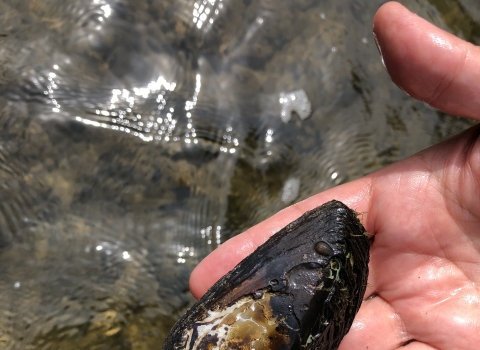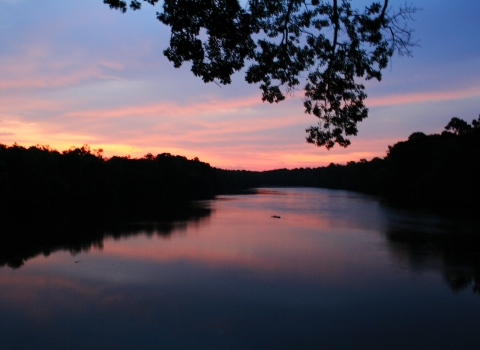Highly pathogenic avian influenza (HPAI) viruses can affect the health of humans, domestic animals, and wildlife. The current global outbreak of HPAI H5N1 has caused illness and death in domestic poultry, waterfowl, shorebirds, gulls, birds of prey, and red fox in Alaska, similar to elsewhere in North America. However, the Centers for Disease Control believe that the human health risk from this HPAIH5N1 outbreak in North America is low. The U.S. Fish and Wildlife Service is responsible for monitoring wild bird populations for the earliest possible detection of HPAI H5N1 by conducting morbidity and mortality investigations on Service lands, as well as assisting our partners with the collection of biological samples for testing live and hunter-harvested birds for HPAI H5N1.
Hunters
While the CDC believes the risk of HPAI H5N1 to human health is low, Alaska hunters should still exercise caution while hunting and eating migratory birds by following these steps to reduce infection risk:
- Do not harvest game that appear sick or are found dead.
- Wear rubber or disposable latex or nitrile gloves while handling and cleaning game.
- When done handling game, wash hands thoroughly with soap or disinfectant, and disinfect knives, equipment, and surfaces that were in contact with game.
- Do not eat, drink, or smoke while handling game.
- Cook game and eggs thoroughly to an internal temperature of 165 degrees Fahrenheit.
To Report Observations and Concerns about Migratory Birds in ALASKA
Birds with HPAI infections may appear disoriented, be walking in circles, have jerky head movements, or hold their neck or heads in an unusual position, or may be dead. Helpful information to include when reporting: location of the bird(s), species; number of birds; and whether the birds are dead, dying, injured or behaving in an erratic or abnormal manner, or have lost their fear of humans.
- U.S. Fish and Wildlife Service's Alaska Sick and Dead Bird Hotline: 1-866-527-3358 or907-229-6357
- Email us: ak_mbm@fws.gov
- Local Environmental Observer Network
For more information:
U.S. Fish and Wildlife Service information about Avian Influenza in wild birds
Alaska Bird FAQ: if it's sick, abandoned, injured or dead
Alaska Department of Health and Social Services Avian Flu page
Human HPAI health information: Centers for Disease Control HPAI
National HPAI case counts in wild birds: USDA-APHIS
Case counts in Alaska: https://dec.alaska.gov/eh/vet/announcements/avian-influenza-outbreaks.



